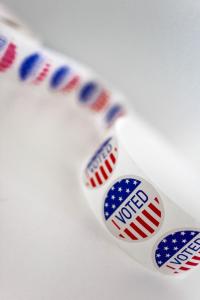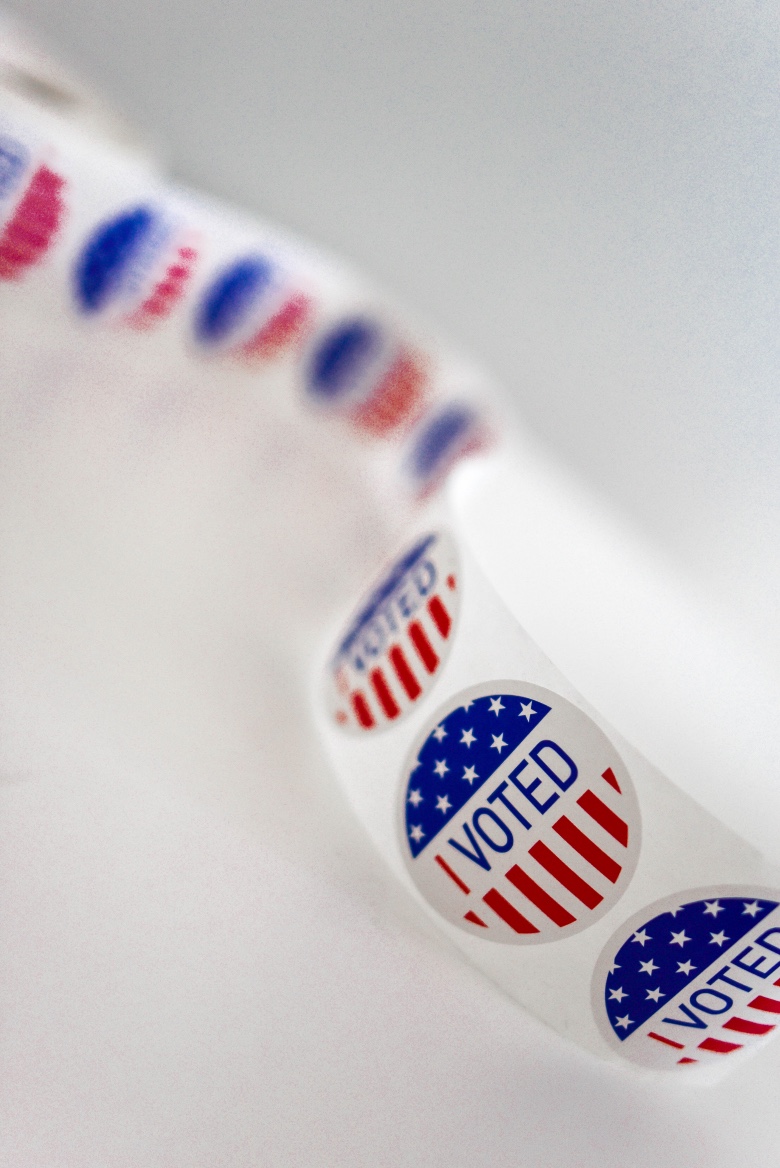
While I believe churches should be allowed to discuss political issues, we should never have to wonder whether we’re listening to sermons or campaign rallies!
Faith and Politics
This is the third of three articles on subjects relating to faith and politics. The first article (“Should Politicians Be Guided by Their Faith?”) dealt with the importance of personal faith to those in the political realm. Should they be guided by their faith? I believe they should. I’d much rather have someone tell me their faith and how they’re guided by it than to hide it and act like it doesn’t matter.
The second article (“Separation of Church and State?”) talked about the idea of “separation of church and state.” Specifically, I talked about the two clauses of the First Amendment (the “Free Exercise” clause and the “Establishment” clause) and how they work together in the area of religious freedom. I believe that religious organizations should not be treated differently simply because they are religious. In other words, I lean more toward “free exercise.” To treat religious organizations differently simply because of their faith actually establishes the “faith” of non-belief.
That brings me to the third topic in this series: Should religious services or sermons include conversations about elections and politics? I see two separate issues here. First, should religious services include discussions about these issues? In other words, is it appropriate for churches to discuss political issues and elections? Second, do churches have the right to discuss those issues? These two questions actually flow from the first two articles in this series.
Sermons or Campaign Rallies: Should Churches Discuss Political Issues?
The first question focuses on whether churches and pastors should “bother” with political matters. Are these issues important enough for the church to discuss? My answer is “yes.” As I mentioned in my first article, our religious faith ought to influence every area of our lives. My faith influences by relationships with family and friends. It impacts how I do my job. And it ought to affect my political beliefs and the way I choose to express those beliefs.
I am opposed to any attempt to compartmentalize our faith. That’s true whether people think faith is “too important” to worry about political stuff, or whether they think that political issues are “too important” to allow faith to influence them. Our religious beliefs (including a decision to not believe) is at the core of who we are as individuals. Our faith certainly ought to influence our political beliefs and behaviors.
Sermons or Campaign Rallies: Separation of Church and State
The second question flows from the discussion of the separation of church and state. If the government shouldn’t try to influence faith or push people in a particular faith-direction (and government should not do that), then should the church try to influence people’s political behaviors? In other words, is that really a “wall” of separation between church and state, or is it a one-way barrier?
If you’ve read my earlier posts, you can probably guess that I think that the “wall of separation” is more like a one-way barrier. My rationale for that is that I’m more of a “free exercise” person than an “establishment clause” person. When I say that the church should be free to talk about political issues and laws, and policies and procedures, I believe that the church has the same rights to do that as any other citizen.
Sermons or Campaign Rallies: Churches Have Freedom of Speech, Too!
For those who may think that “churches” can’t be citizens, you’re mistaken. There are a few occasions when laws make a distinction between “natural persons” and others, but this is not one of those cases. Corporations have First Amendment rights. (The Supreme Court upheld this in connection with political contributions.) If corporations have those rights, other organizations should as well – including churches.
So churches do have the right to talk about political issues. Now, there are regulations restricting how far a church (or any other tax-exempt organization) can go in terms of political speech, and I don’t have a problem with those restrictions. In fact, I would suggest that we should follow most of those restrictions whether we’re required to or not! I don’t want to endorse particular candidates or parties. I certainly do want the right to talk about particular issues.
Sermons or Campaign Rallies: Let’s Not Confuse Them
The fact is that there are relatively few political issues on which I think there is a clear “biblical” position. And, perhaps surprisingly to some people, I don’t believe either political party is on the “right” side of all of those issues. Each “side” gets certain things right. At that point, it becomes a matter of deciding which ones each person finds most important – and not everyone will agree on that.
Each time an election rolls around, I find ways to remind the people in our congregation of a quote from John Wesley, our spiritual forefather. From John Wesley’s journal: “October 6, 1774. I met those of our society who had votes in the ensuing election, and advised them: 1. To vote, without fee or reward, for the person they judged most worthy; 2. speak no evil of the person they voted against; and 3. To take care their spirits were not sharpened against those that voted on the other side.”
Wouldn’t that be a good approach for us all?

















Post comments (0)